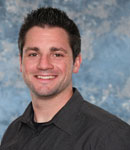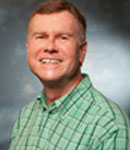»Chemistry, Biochemistry and Food Science Faculty
To search for a specific faculty member, please visit our searchable faculty directory.
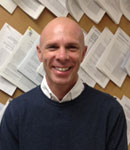
Marco Bisoffi, Ph.D.
Associate Professor, Molecular Biology
Head of Chemistry, Biochemistry and Food Science Faculty
Co-Director, Chemistry and Biochemistry
bisoffi@chapman.eduRESEARCH INTERESTS
Dr. Bisoffi’s research program encompasses two major domains: First, the study of
field cancerization, in particular in prostatic tissues. Specific projects include
the elucidation of molecular mechanisms of field cancerization in cell and animal
models; the use of markers of field cancerization as indicators of disease; and the
exploration of mediators of field cancerization as therapeutic targets. Second, the
testing of natural product based experimental therapeutics with a focus on reactive
oxygen species generation and target protein degradation in cancer cell and animal
models.
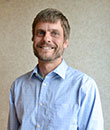
Nicolai Bonne, Ph.D.
Assistant Professor, Chemistry and Biochemistry
bonne@chapman.eduTEACHING INTERESTS
Socratic teaching methodology to promote active learning and comprehension over factual
knowledge retention, effective learning processes (‘how to learn’), accurate communication
skills, working with students of all academic levels and abilities, promote ‘learning
for life’ as opposed to ‘learning to pass’.
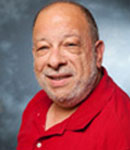
Fredric Caporaso, Ph.D.
Professor, Food Science and Nutrition
caporaso@chapman.eduRESEARCH INTERESTS
Dr. Caporaso has 35 years of experience as a sensory scientist. Although much of his
research has been proprietary, he has published in top peer reviewed journals, completed
hundreds of sensory testing contracts for local and national food companies (e.g.
Con Agra/Hunt-Wesson, Nestle/Carnation, BakeMark, King’s Hawaiian Bakeries, Ready
Pac Produce, Baskin-Robbins, etc.) and been an expert witness in sensory testing litigation.
Dr. Caporaso was profiled in both the Wall Street Journal (11-25-98) and The Chronicle
of Higher Education (2-23-94) and has appeared as an expert on the hit TV show Myth
Busters.
Dr. Caporaso has been an active member of the Institute of Food Technologists (IFT,
the scientific society for food science and technology with 22,000 members worldwide).
His key awards include IFT Fellow (1999), and the Southern California IFT Section’s
Distinguished Achievement Award (2005).
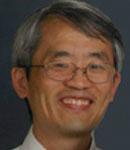
Yu-An (Peter) Chang, Ph.D.
Instructor, Organic Chemistry
ychang@chapman.eduTEACHING AND RESEARCH INTERESTS
Dr. Chang’s teaching interests focus on helping students learn Organic Chemistry Lab
technique and theories; as well as biotechnology and bioengineering application in
real life situation. His goal is to assist all students to reach their highest goals
or even more than students thought they could achieve with fun and enthusiasm for
Organic and science in general so they can realize a successful life.
Dr. Chang’s research interests center around drug design, synthesis, medical devices,
diagnostic kit development, improvement, and clinical trials. He was involved in
the R&D of 8-Cl-cAMP which has been through clinical Phase II trials, the Isolex 300i
for peripheral stem cell selection (microgenetic stem cell project), and the MaxSept
system for bone marrow purging. These have been approved by FDA, European regulatory
offices, Japanese regulatory office, along with several other countries in 1997 for
the treatments of maladies such as cancer, heart disease, and lung disease. He was
also involved in the improvement of blood test systems for fungal allergies, as well
as the R&D of several one step diagnostic kits for infectious diseases such as HIV
and HCV virus diagnosis. Specific projects currently under his consultation include
the development of oral insulin using nanotechnology, a multiple drug anti-cancer
project, peripheral stem cell selection and clinical applications, blood separation
system development and clinical applications for blood component separation such as
platelet collection, removal of antibodies in the blood for the treatment of auto-immune
diseases as well as other blood related illness. He has worked with biocompatible
surface modification for artificial liver and open heart-lung surgery oxygenator and
eye implants, and the clinical applications of enriched oxygen air generated by an
Oxygenator for diseases such as Alzheimer disease and other dementia of seniors.
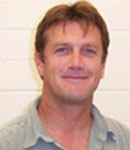
Warren de Bruyn, Ph.D.
Professor, Chemistry
debruyn@chapman.eduRESEARCH INTERESTS
Current research is focused on the oceanic cycling of sulfur species and oxygenated
hydrocarbons into or out of the troposphere which have implications for global climate
change and the oxidative capacity of the troposphere. This work involves instrument
development, laboratory kinetic measurements, coastal field measurements and open
ocean measurements.
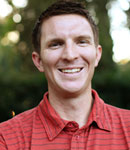
Matthew Gartner, Ph.D.
Associate Professor, General Chemistry
gartner@chapman.eduTEACHING INTERESTS
Dr. Gartner’s teaching interests are focused on active learning in general chemistry
and analytical chemistry courses. He is the lead general chemistry lab professor
and is integral in the development of the CHEM 140L/150L lab sequence. Currently,
he is pursuing novel and innovative approaches to utilizing active learning techniques
in the general chemistry course sequence through the development of a flipped-modeled
course. He is interested in scientific education research, specifically as it relates
to chemistry.
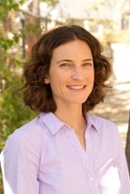
Rosalee Hellberg, Ph.D.
Associate Professor, Food Science
hellberg@chapman.eduRESEARCH INTERESTS
Dr. Hellberg’s research is focused on food safety and mislabeling. On the food safety
side, she investigates the effects of climate change on food safety, specifically
with regard to food microbiology, and she works on the development of molecular methods
for the identification and differentiation of foodborne pathogens. On the food mislabeling
side, she develops and applies molecular methods to identify instances of species
substitution or misbranding in a variety of food items.
Specific projects underway include modeling the relationship between climatic factors
in Orange County and human illness from Salmonella, examination of Listeria isolates
for the presence of a gene important in virulence, investigation of game meat mislabeling,
and development of a primer set to perform DNA barcoding on canned fish.
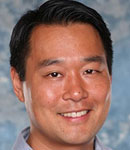
Christopher Kim, Ph.D.
Professor, Chemistry
Associate Dean, Academic Programs
cskim@chapman.eduRESEARCH INTERESTS
Particle size dependence on trace metal(loid) concentration, distribution and speciation
in mine wastes; Bioaccessibility and bioavailability of toxic metal(loid)s in contaminated
soils and sediments; Iron oxyhydroxide nanoparticle growth, aggregation, and reaction
mechanisms in aqueous systems; Synchrotron-based spectroscopic and microscopic methods
for mineralogical/geochemical analysis.
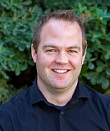
Jerry L. LaRue, Ph.D.
Assistant Professor, Chemistry
larue@chapman.eduRESEARCH INTERESTS
Catalysts are the unsung heroes of chemistry: Widely used in industry, they speed
up chemical reactions by making the reactions much more efficient. Many important
reactions related to global issues, such as climate change and carbon-neutral fuel
production, take place on the surfaces of metal catalysts. Today we know very little
about how these reactions proceed. Dr. LaRue’s research interests are aimed at understanding
the most fundamental aspects of the processes that occur during chemical reactions
on these catalytic surfaces. His current projects involve using ultrafast optical
techniques, x-ray spectroscopy, and Raman spectroscopy to probe the elementary steps
of chemical reactions on metal crystals and nanoparticles, with the goal of creating
more efficient catalysts to help combat the global challenges we face today.

L. Andrew Lyon, Ph.D.
Professor, Chemistry
Founding Dean, Fowler School of Engineering
RESEARCH INTERESTS
Dr. Lyon’s research interests center around the design, synthesis, and application
of soft (synthetic and natural polymer-based) nanomaterials in bioanalytical and regenerative
medicine applications. Specific projects under investigation include the development
of artificial platelet technologies, colloid-modified biopolymer scaffolds, self-healing
polymer films, new bioanalytical sensors, and reconfigurable materials to direct cell
proliferation and differentiation.

John Miklavcic, Ph.D.
Assistant Professor, Food Science and Nutrition
miklavcic@chapman.eduRESEARCH INTERESTS
Dr. Miklavcic has a translational research program in human nutrition that focuses
on understanding the therapeutic applications of functional foods and nutraceuticals
in human health. He is particularly interested in how dietary lipids interact with
and regulate gene function in neonatal health & development and in chronic conditions.
Dr. Miklavcic uses quantitative and qualitative methods as well as applied and implementation
research in studies with clinical populations of infants, adolescents and older adults.

Cedric P. Owens, Ph.D.
Assistant Professor, Biochemistry
cpowens@chapman.eduRESEARCH INTERESTS
The Owens laboratory is very interdisciplinary and conducts research at the interface
of inorganic chemistry, biochemistry, and molecular biology. We currently focus on
two research areas: (1) We are investigating regulation of the metalloenzyme nitrogenase
in nitrogen-fixing bacteria. Nitrogenase contains several unique metal cofactors and
is responsible for the biological conversion of inert nitrogen gas into ammonia, a
critical nitrogen source for plants. By deepening our understanding of nitrogenase
regulation, we aim to uncover ways of increasing biological ammonia production for
agricultural applications. (2) In a separate project, we are studying how bacteria
acquire iron with the aim of exploiting bacterial iron uptake for antibiotic development.

Anuradha Prakash, Ph.D.
Professor, Food Science and Nutrition
Director, Food Science Program
prakash@chapman.eduRESEARCH INTERESTS
Food processing and preservation, specifically food irradiation. Her research focus
is on the use of radiation to enhance the safety and shelf-life of fruits and vegetables
and ready-to-eat meals. Currently, she is evaluating the effects of phytosanitary
levels of irradiation on the quality of fruit.
Anuradha teaches food processing, food engineering, new product development, food
sustainability and nutrition at Chapman University. Anuradha has a keen interest in
the global issues of health, food safety, security and sustainability.

Melissa Rowland-Goldsmith, Ph.D.
Associate Professor, Molecular Biology
rowland@chapman.eduRESEARCH INTERESTS
Dr. Rowland-Goldsmith’s research interests center around studying human pancreatic
cancer which is the 4th leading cause of cancer related death in the United States.
The ability of pomegranate juice extract (PJE) to stimulate apoptosis (programmed
cell death) and inhibit cancer cell invasion in several cancer types has been attributed
to its high polyphenol content. Caffeine has also been shown to induce apoptosis in
several cell types. Specific projects under investigation include the study of natural
products (PJE and caffeine) to reduce pancreatic cancer cell proliferation and migration
as well as promoting cell adhesion.
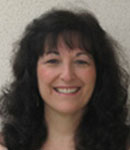
Elaine Schwartz, Ph.D.
Associate Professor, Chemistry
Assistant Dean, External Relations for Schmid College of Science and Technology
Co-Director, Chemistry and Biochemistry
eschwart@chapman.eduRESEARCH INTERESTS
Discovery, pre-clinical, and clinical development of small molecules of medicinal
importance. Synthesis and evaluation of analogs of gamma-carboxyethylhyroxychroman
(CEHC) for the reversible inhibition of the apical 70 pS K+ channel in renal TAL and
treatment of neuroinflammatory diseases such as Amyotrophic Lateral Sclerosis (ALS).
Pharmacologic studies of R-Flurbiprofen and other R-NSAIDs (nonsteroidal anti-inflammatory
drugs) for treatment of colon and prostate cancer and Alzheimer's Disease. Chiral
control of branched fatty acid oxidation: prevention and treatment of obesity and
related metabolic diseases.
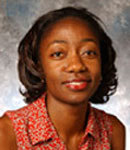
Lilian Were, Ph.D.
Associate Professor, Food Science
were@chapman.eduRESEARCH INTERESTS
Dr. Were’s current research is focused on determining the preservative properties
of phenolic and melanoidin coffee compounds, with the overall goal of enhancing the
shelf life of food. With coffee being the most traded agriculture commodity globally,
coffee provides a readily available source of natural bioactive ingredients. The laboratory
work involves characterizing bioactive compounds in plant based foods e.g. coffee
and determining their effect on chemical and microbial shelf life extension in food.
Dr. Were’s specific training was in protein chemistry having worked on protein based
edible films, plasminogen activators in milk, and antimicrobial encapsulation in liposomes
for enhanced efficacy against bacteria.
